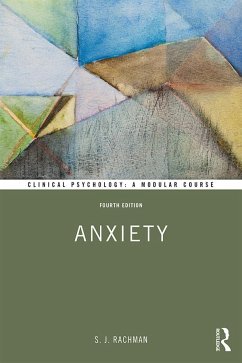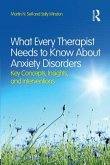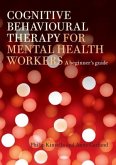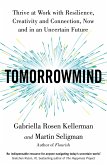This book details the growth of positive psychology, with its emphasis on learned optimism and resilience, influencing clinical psychology and psychological therapy, and explains the new concept of prospection, a key element in positive psychology based on the human ability to imagine thoughts and images about the future. It is said that we are influenced by the past but drawn into the future, and this notion has significant implications for anxiety. The recent infusion of positivity into theorising about anxiety has introduced a welcome balance into our understanding of this phenomenon.
This informative book coversthe latest developments in research, therapy and theorising, containing numerous case-history illustrations about anxiety. It should appeal to practising and trainee psychologists and practitioners in related fields.
'Throughout his more than 50-year career, Professor Rachman has contributed ground-breaking and foundational ideas on the origins, nature and treatment of anxiety and panic and their disorders. From original conceptions of basic learning processes involved in the development of fear, to the crucial identification of the cognitive roots of obsessive-compulsive and related anxiety disorders, to discovery of the appropriate processing of emotions as the basis for all evidence-based psychotherapeutic treatments, Rachman has led the way. Now, in the publication of the fourth edition of his seminal work Anxiety, Rachman updates these concepts and integrates important new ideas on positive psychology and "prospection" as important components of psychological treatment. Every clinician and clinical scientist working with anxiety (and that includes almost all of us) should have this brief manual on their bookshelf.'
David H. Barlow, PhD, ABPP, Professor Emeritus of Psychology and Psychiatry, University of Boston, USA
'This is a highly accessible, clearly written, state-of-the-art update on anxiety disorders. Concise yet comprehensive, the fourth edition effortlessly integrates clinical and academic perspectives including cognitive science, clinical psychology and positive psychology. Unlike other books, the current understanding and treatment of anxiety disorders is given a historical context, which enables the reader to benefit from the author's unprecedented decades of first-hand experience. The case studies and summaries illuminate the conceptual content and make the book essential reading for students, researchers and practitioners alike.'
Roz Shafran, PhD, Professor of Translational Psychology, University College London, UK








